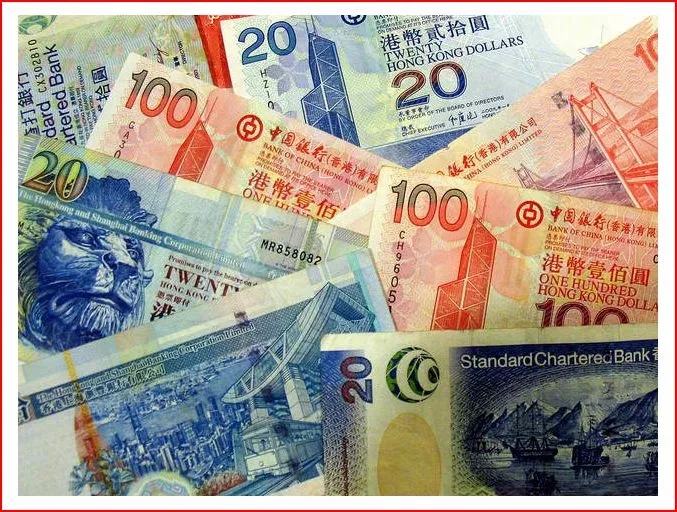
Financial secretary urged to boost tax incentives
So that there are more market opportunities.
CPA Australia, one of the world’s largest professional accounting bodies, encourages Financial Secretary, John Tsang, to boost incentives to encourage more Hong Kong businesses to seize opportunities created by the Belt and Road initiative.
According to a release from CPA Australia, it sees real merit in the Financial Secretary considering implementing a deduction of 200 per cent for expenditure relating to research and development, innovation, brand building and market development conducted in Belt and Road countries.
The recommendation follows new survey data from CPA Australia that reveals strong support for companies to be given extra incentives to participate in the initiative.
Alex Malley, chief executive of CPA Australia, says the results from the annual tax survey show there is real appetite for businesses to take advantage of new market opportunities.
“Belt and Road provides improved access to a multitude of new markets, from Myanmar to Spain, and represents an opportunity for Hong Kong to enhance its competitiveness and secure its position as a global financial centre,” Malley said.
“Around 60 per cent of Hong Kong-based members who responded to the survey believe the Government should provide tax incentives to companies participating in the Belt and Road initiative.
Here's more from CPA Australia:
“If adopted, our recommendations should encourage more companies to expand their horizon which in turn will support economic growth and job creation in Hong Kong.
“With its increasing integration into the Mainland’s economy, business-friendly environment, low taxes, well-developed capital markets and large pool of professional talent, Hong Kong is very well placed to offer a comprehensive range of value-added services to companies along the ‘One Belt One Road’ routes,” Malley said.
Paul Ho, Chairperson of CPA Australia’s Taxation Committee – Greater China, said that the survey results show overwhelmingly, that 77 per cent of respondents believe that the government should take action to reform the tax system to improve Hong Kong’s competitiveness.
“On all the available information, I expect the Government to register a surplus in the order of HKD79 billion for 2015/16. However, if we take into account the HK$45b that the Government announced in December last year that it would set aside for further injection into the Housing Reserve, the overall surplus would be reduced to HK$34b. However, an essential part of addressing Hong Kong’s long-term economic and social challenges is to debate, develop and implement a long-term and comprehensive tax reform agenda,” Mr. Ho said.
“The need for reforms to help our businesses remain regionally competitive has been identified as a key issue. When asked to compare jurisdictions, 51 per cent of respondents ranked Singapore as having the most internationally competitive tax system, compared with Hong Kong, which is down 1 per cent from last year to 29 per cent.
“Such a ‘root and branch review’ of the tax system is likely to conclude that a goods and services tax at a low rate with suitable compensation mechanisms should be part of Hong Kong’s tax system. Broadening Hong Kong’s tax base should improve the Government’s long-term financial stability and provide a more stable source of revenue that could, in time, be used to lower other taxes which would contribute to improve Hong Kong’s competitiveness.
“In the short term, members most favour a reduced profits tax rate for SMEs as the one thing the government should announce in the coming budget that could do to improve the competitiveness of Hong Kong’s tax system and encourage small business to grow.
“On personal tax measures, members would most like to see the government use the Budget to announce that future increases in the personal allowance will be linked to the rate of inflation.
“The government should also consider announcing initiatives in the budget that build upon its serious and sustained contribution to encouraging businesses to undertake innovation in Hong Kong. For example, almost three quarters of respondents (74 per cent) agree with the introduction of preferential tax policies for the technology sector with members favouring such incentives being targeted at e-commerce and technology to support the well-being of an ageing population.
“While the Belt and Road initiative is very significant for the future prosperity of the Mainland and Hong Kong, a comprehensive tax reform agenda is also critical to giving Hong Kong the best opportunity to prosper.
“At the same time, expanding Hong Kong’s tax treaty network to cover more Belt and Road countries is essential. We recommend that the government give priority to expanding the tax treaty network in or expedite the conclusion of tax agreements with India, Bangladesh, Saudi Arabia, Poland, Turkey, Pakistan and Sri Lanka,” Mr. Ho said.
The Hong Kong tax survey provides annual insights into the views on a number of important tax issues of finance and accounting professionals from listed companies, multinational corporations, private enterprises, government and not-for-profit organisations in Hong Kong.



















 Advertise
Advertise








